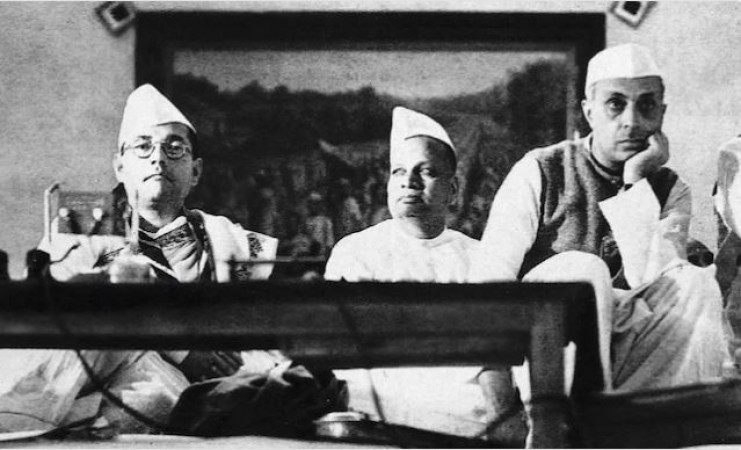
New Delhi: As India commemorates the death anniversary of Subhas Chandra Bose, it is an opportune moment to reflect on the enigmatic leader's life, his contributions to the freedom struggle, and the unanswered questions that continue to surround his legacy. One such question is whether the recognition of the Azad Hind Government, formed by Bose in 1943, could have altered the trajectory of India's history, particularly in relation to the partition of the country.
Recognition of Azad Hind Government:
During World War II, Subhas Chandra Bose led the formation of the Azad Hind Government in Singapore with the objective of liberating India from British colonial rule. The government garnered recognition from nine countries, including Germany, Japan, and Italy. This recognition was significant as it provided the Indian National Army (INA) under Bose's leadership with international legitimacy and support.
The Contemplated Recognition by India:
Had the then Indian leadership, particularly the Indian National Congress, recognized the Azad Hind Government, it might have led to a different dynamic in India's struggle for independence. Recognition would have acknowledged Bose's efforts in galvanizing international support and perhaps positioned the INA as a more potent force against the British.
The Role of Recognition in Partition:
The question of whether recognition would have prevented the partition of India is complex. While Bose's vision of a united and independent India was well-documented, the forces leading to partition were multifaceted and deeply rooted. Factors such as religious tensions, political differences, and communal violence contributed to the eventual partition. Bose's recognition might have altered the discourse, but it might not have been a decisive factor in preventing partition.
Congress' Perspective:
The Indian National Congress, under the leadership of Mahatma Gandhi and Jawaharlal Nehru, had its reservations about the Azad Hind Government. They questioned Bose's alliance with the Axis powers during World War II, which raised concerns about aligning with countries that were at odds with India's democratic principles. The Congress leaders sought a nonviolent path to independence and were cautious about the implications of recognizing a government with potentially conflicting ideologies.
Unanswered Questions:
The Congress' decision not to recognize the Azad Hind Government remains a point of debate and speculation. Could recognition have strengthened the fight for independence? Would it have changed the course of events leading to partition? These questions remain unanswered, adding to the mystique of Bose's legacy.
As we remember Subhas Chandra Bose on his death anniversary, it is essential to acknowledge his remarkable contributions to India's struggle for freedom. His leadership, determination, and sacrifices have left an indelible mark on the nation's history. While the question of whether recognition of the Azad Hind Government could have altered the partition remains open, it is crucial to honor Bose's legacy by continuing to study, discuss, and learn from his life's complexities and his relentless pursuit of India's liberation.
Unveiling the Dark Past: The Hindu Kush Genocide and its Haunting Legacy
Kerala Assembly Passes Unanimous Resolution to Rename State as 'Keralam'
Robert Vadra Advocates for Priyanka Gandhi's Lok Sabha Candidacy, Calls for Party Planning